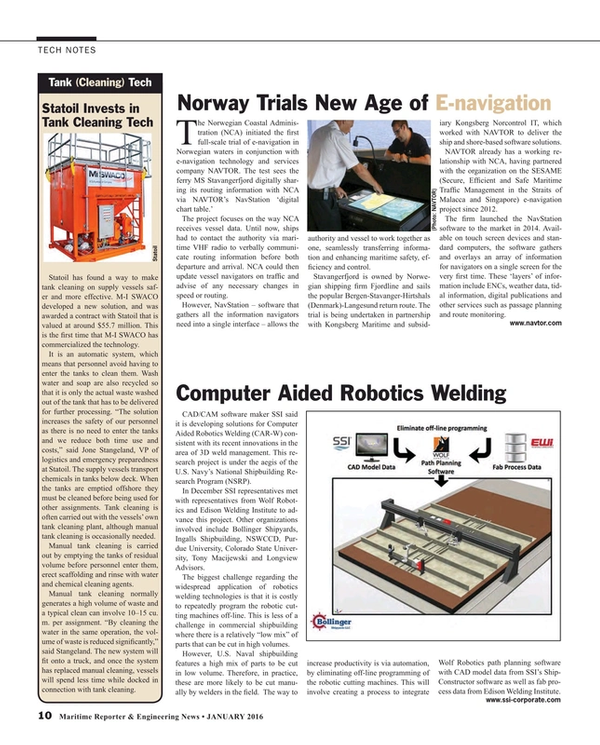
New Tank Cleaning Technology
Statoil has found a way to make tank cleaning on supply vessels safer and more effective. M-I SWACO developed a new solution, and was awarded a contract with Statoil that is valued at around $55.7 million. This is the first time that M-I SWACO has commercialized the technology.
It is an automatic system, which means that personnel avoid having to enter the tanks to clean them. Wash water and soap are also recycled so that it is only the actual waste washed out of the tank that has to be delivered for further processing. “The solution increases the safety of our personnel as there is no need to enter the tanks and we reduce both time use and costs,” said Jone Stangeland, VP of logistics and emergency preparedness at Statoil. The supply vessels transport chemicals in tanks below deck. When the tanks are emptied offshore they must be cleaned before being used for other assignments. Tank cleaning is often carried out with the vessels’ own tank cleaning plant, although manual tank cleaning is occasionally needed.
Manual tank cleaning is carried out by emptying the tanks of residual volume before personnel enter them, erect scaffolding and rinse with water and chemical cleaning agents.
Manual tank cleaning normally generates a high volume of waste and a typical clean can involve 10–15 cu. m. per assignment. “By cleaning the water in the same operation, the volume of waste is reduced significantly,” said Stangeland. The new system will fit onto a truck, and once the system has replaced manual cleaning, vessels will spend less time while docked in connection with tank cleaning.
(As published in the January 2016 edition of Maritime Reporter & Engineering News - http://magazines.marinelink.com/Magazines/MaritimeReporter)
Read New Tank Cleaning Technology in Pdf, Flash or Html5 edition of January 2016 Maritime Reporter
Other stories from January 2016 issue
Content
- ECDIS Adoptions: Halfway Home page: 8
- Norway Trials New Age of E-navigation page: 10
- New Tank Cleaning Technology page: 10
- Report: Methanol a Viable Alternative Marine Fuel page: 11
- Maritime Training & Continuous Improvement page: 14
- Interview: Frederic Fontarosa, WSS Ships Agency page: 16
- Modern Piracy & International Shipping ... the Challenge Continues page: 18
- Cyber World: Safer Seas via Phantom Ships page: 20
- Cyber Security In Shipping & Offshore Ops page: 22
- Non-EU Europe Fishing Fleets: Europe’s Profitable 'Outsiders' page: 26
- Spanish Ship Repair On a Winning Streak page: 30
- Enseda Shipbuilding & Surviving the Petrobras Crisis page: 34
- SUPSALV & Finding El Faro page: 38


